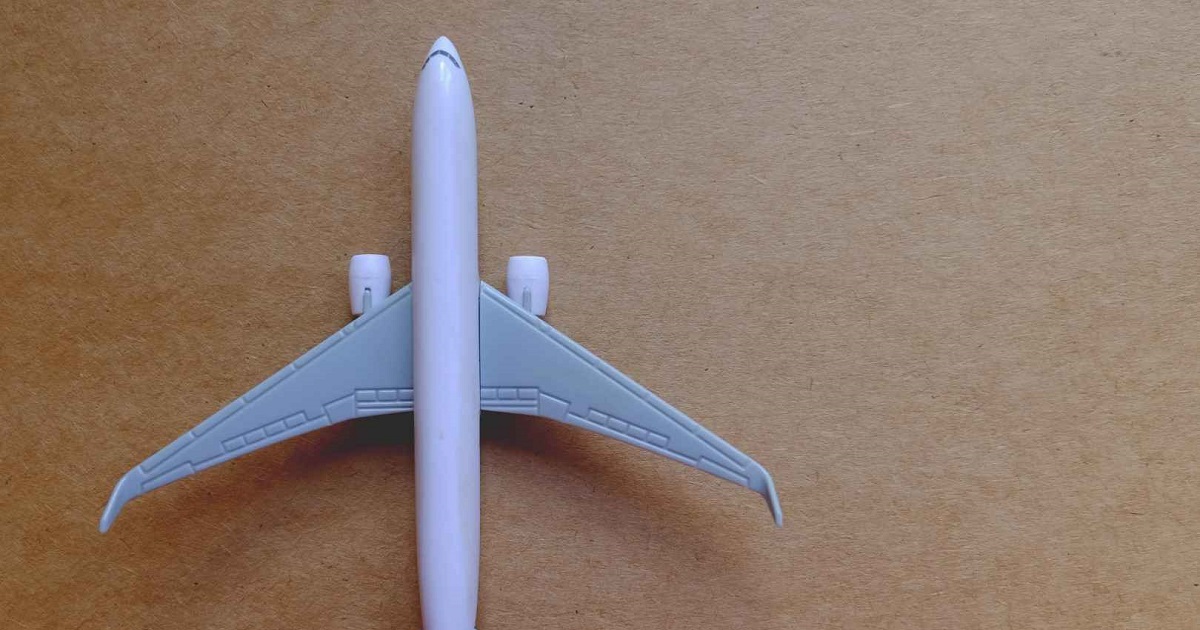
Aviation Technology
Article | July 26, 2022
As 2021 is a few months away from its end and is the beginning of a new year, it is hopeful that it will bring more positiveness for airline businesses. But what the industry has ahead? How will the new landscape of technology strategies in airline businesses look?
Or say, what will be the platforms for novel technology strategies in the aviation industry in the future?
Let’s have a quick read in the next!
What Airline Technology Strategies Will Look Like?
As you know, the airline industry saw a lot of disruption in 2020. But the circumstance also paved the way for promising and powerful new technologies.
Airline businesses are now turning the tech trends to their advantage. In this way, they can get a handful of opportunities to streamline operations. They could do this because the landscape of technologies is reshaping aviation.
For example, IATA recently calculated that the airline's revenue worldwidewould be more than half of what it was in 2019. That means the industry will witness a massive change due to emerging tech stacks. Its rising importance is influencing market leaders to make more informed decisions today. This is why it is critical to imply technology strategies in your business.
Thus, the focus is on the clients' strategic choices and investments. It will now depend on the implications of technology strategies.
How will some of the applied proactive technologies in business processes look like in the new normal?
This blog groups some of the newer technologies for the new normal in aviation. Explore them and take inspiration from the potential of technologies to revive your business and drive growth.
5 Tech Strategies to Reshape Airline Industry
Machine Learning with AI
Before the pandemic, the airline industry displayed an exceptional commitment to the potential of AI. Like, you must have seen the adoption of chatbots to communicate and other ways to improve operations.
Now, the usage of AI is soared, and its application is more profitable than before. The platform analyses a faster deployment of millions of operational data.
Mechanization
Mechanization technology in the airline industry is gaining thrust. Due to the rapid developments and advancements, several airline businesses are implementing it. As tools are becoming smarter, businesses will soon have completely automated operations. Automation will ease all the workloads, reduce manual intervention and errors to a high accuracy rate.
Real-Time Information Technology
Real-time information technology is a significant technological aviation strategy. It has the potential of improving airlines’ operation efficiency with the help of customized software usage.
Your business can drive growth by implementing custom software applications. But, as you know, to deliver customized and personalized solutions, it is essential to understand clients’ expectations and preferences. So, how is this technology going to take you through it? Let’s understand in the following ways:
Personalized solution: Custom software applications are developed with the help of the updated information collected by knowing customer’s preferences. In this way, you can create personalized or customized solutions for your clients.
Technical Excellence: Having an expert development team across all application stages is a plus in your business. The cutting-edge tools will benefit from fulfilling clients’ demands
Higher business value realization: It's critical to properly align real-time information technology with your business processes. This will deliver solutions on time with the right approach to your client. This way, your business can generate higher value and build trust in long-term relationships with clients.
Analytics
Analytics is the most urgent technological need for airline businesses in the future. Aacquiringe accurate data, predicting losses, and evaluating clients’ needs will be the next transformational scenario in the airline industry.
Implementing this technology will allow airlines to streamline their operations ahead of time. It will also help to take realistic measures to bring down losses that occurred due to the pandemic.
Analytics are also effective in predicting and preparing for the results of business efforts. Data-backed analytics would provide insights to pinpoint geo-specific interventions to gain higher ROI.
Agility
The implementation of technology strategies has encouraged airline businesses to become agile. At the same time, some leading industry market players have now shifted their business to operate in agility. So, it's expected that this trend will continue beyond 2021.
The aviation industry caters to a vast array of products and services. It works to deliver seamless operations and services. The adaptation of agility requires multiple systems to interact and exchange data. So, with the growing rate of partnerships, agility is the need of the hour.
Today, in several airline businesses, teams work in separate locations. Being agile helps them to win adverse circumstances. It also builds the trust of audiences by keeping transparency in work and responding to queries faster.
With this, the emerging technology is also expected to help track the progress of smaller efforts and proactively handle the metrics for projects coming in. In addition, the technology ensures that you can constantly inspect functions and deliver quality products or services.
Lastly, since the budget is one of the top concerns of airline businesses, the development of agile technology strategies helps to keep a check on expenses. Therefore, by tracking the expenditure, it will be easier to plan future budgets adequately.
Frequently Asked Questions
What are other critical new technologies that will transform aviation?
According to IATA’s report, the aviation industry will witness a drastic transformation. Some important new technologies such as cybersecurity, 3D printing in manufacturing, robotics, and biometrics will enter in the future.
How has technology enhanced the aviation industry?
Technology has enhanced aviation in manufacturing. New techniques have created new aircraft with improved fuel consumption and reduced environmental impact. In terms of operation, automation and AI are the new takeovers in aviation.
Why is technological development important for aviation?
Technological development is important to improve the efficiency of airline operations. The need for better connectivity, enhanced travel experience, reduced fuel costs, budget alignment, control over expenses has urged technology to step in.
{
"@context": "https://schema.org",
"@type": "FAQPage",
"mainEntity": [{
"@type": "Question",
"name": "What are other critical new technologies that will transform aviation?",
"acceptedAnswer": {
"@type": "Answer",
"text": "According to IATA’s report, the aviation industry will witness a drastic transformation. Some important new technologies such as cybersecurity, 3D printing in manufacturing, robotics, and biometrics will enter in the future."
}
},{
"@type": "Question",
"name": "How has technology enhanced the aviation industry?",
"acceptedAnswer": {
"@type": "Answer",
"text": "Technology has enhanced aviation in manufacturing. New techniques have created new aircraft with improved fuel consumption and reduced environmental impact. In terms of operation, automation and AI are the new takeovers in aviation."
}
},{
"@type": "Question",
"name": "Why is technological development important for aviation?",
"acceptedAnswer": {
"@type": "Answer",
"text": "Technological development is important to improve the efficiency of airline operations. The need for better connectivity, enhanced travel experience, reduced fuel costs, budget alignment, control over expenses has urged technology to step in."
}
}]
}
Read More

Air Transport
Article | July 15, 2022
Although airlines only contribute to 2% of global emissions today, research indicates that this number could rise if air travel continues to grow. As such, airlines need to adapt and find new ways to become more sustainable. Successful implementation of eco-conscious strategies will see carriers achieve higher profits and maintain the trust of customers.
SimpliFlying has a long history of helping airlines craft the future of travel and we believe that addressing climate change is essential to rebuilding trust in the aviation industry.
Read More

Business Aviation
Article | January 28, 2022
The pandemic has caused a deeper level of disruption, which brought the aviation industry to a standstill for months. After facing long months of hardship, what vision and steps will be for airline recovery? This is a significant concern. This would now require complete planning over some crucial areas that form the pillars of the aviation industry.
It is especially airline businesses that require a novel set of advancements to build operational confidence. As the industry is rebooting, technology is benefiting. Be it robotics, IoT, biometrics, seamless integration, automation, and more will aid businesses and their processes.
Therefore, the industry’s next vision is being set according to the evolving changes in the airline industry due to covid-19. It will establish resilience and flexibility for businesses to adapt to changing conditions while improving efficiency.
Here are the key considerations that will be seen as airline recovery curbing airline challenges to plan new avenues beyond 2021.
Collaboration
Collaboration in the aviation business landscape has been the most important consideration after the pandemic affected the industry. Keeping the vision of collaborating with stakeholders and the commercial airline industry to focus on business and customer confidence will restart operations safely.
Collaboration in the future will have a better grasp and be more efficient because of better coordination of data sources being introduced currently. Collaboration becomes even more crucial in the coming years, where you will need updated and accurate information about your business operations. This vision will enhance chances of the following aspects as well:
Customized Experience
Leading to the modifications happening in the industry, you will be able to offer customized services to customers. Advanced integration functionalities will allow forming a contactless and personalized experience to curb the challenges prevailing. Providing transparent and reliable information to customers is one of the critical aspects of airline recovery and rebooting happening now. This is why a customized experience will aid airline businesses more safely in the coming years.
Personalization
Today, airlines, governments, and stakeholders are developing best practices for the immediate future of business with a greater focus on personalization throughout the service journey. It will help attract potential customers and end the general approach, which the industry was practicing before the pandemic.
Monitoring
To design a post-pandemic business model, you can look at the types of technological solutions and processes that have already been started and would emerge beyond 2021.
It has been envisioned that airline industry analysis, coupled with monitoring, would allow businesses to manage resources more efficiently. In this way, deployment of the technology stack will be more accessible according to the need. This will strive to reduce crowds at airports and, therefore, effective management with the help of predicted monitoring will be in action.
Digital Solutions
The new normal in the aviation industry, using technology, would continue to ensure physical contact is diminished or might be eliminated in the future. Mandatory digital checks, implementation of digital platforms, contactless services, and information collected through mobile devices are some elements of the new business models. The industry's vision in the coming years is to demonstrate how it can use digital technology for transformation at scale.
Advanced Processing System
The next, the aviation industry foresees, is utilizing technology for automation, security, identity management, and robotics. Using these, you can develop attractive yet safe experiences for staff as well as customers. The advancing data processing system and management offer a seamless module for companies to handle risks, controls, handling, and tracking. The inclusion of the advanced system at the airport, airline companies will make the process function efficiently. And because of optimized coordination through automated touchpoints, chances of an increase in revenue will be higher and faster than before.
Remote Processing
The continuous advancement of airline activities will significantly support capacity limitations in the coming years. Because of this, you will have safer processing of data and information without any threats or breaches.
The pandemic has put greater focus on the need for such a flexible approach with resilience. Also, it brings urgency to the availability of technology to use while going remote so that you can provide flexibility to your employees to work frictionless.
The industry's vision in its plan is to unlock the full benefits of technology to access and initiate global coordination remotely.
A Changed Way to do Business Today—Sustainability
Companies operating in the airline business are still understanding to survive in the times of COVID-19. Being fast and evolving is the only way they realized to fight against the current situation.
The new normal is bringing changes in the airline industry post covid. This will help the industry to get back its wings to forecast and set up its next vision in the future.
Therefore, industry stakeholders need to quickly put immediate business restart efforts to focus on sustainable implementations. This will make the future actions of the aviation industry monitor and evaluate effectively well in response to the ongoing pandemic. Also, it would help them be ready to face even harsh circumstances if anytime it approaches.
Frequently Asked Questions
What are the risks to the aviation industry during COVID-19?
The level of risk is on the rise in the COVID-19 situation at present in the aviation industry. It may affect the operation, new business models, management, monitoring, and evaluation more as remote work culture is hyped.
What are the main sectors of the airline industry that need improvement?
There are limited sectors in aviation. However, the main ones that need improvement are commercial aviation and business aviation.
What are the crucial areas of operation in the aviation industry?
Flight operations are crucial, including operation control, connectivity, network, data handling, integration, maintenance planning, and software.
{
"@context": "https://schema.org",
"@type": "FAQPage",
"mainEntity": [{
"@type": "Question",
"name": "What are the risks to the aviation industry during COVID-19?",
"acceptedAnswer": {
"@type": "Answer",
"text": "The level of risk is on the rise in the COVID-19 situation at present in the aviation industry. It may affect the operation, new business models, management, monitoring, and evaluation more as remote work culture is hyped."
}
},{
"@type": "Question",
"name": "What are the main sectors of the airline industry that need improvement?",
"acceptedAnswer": {
"@type": "Answer",
"text": "There are limited sectors in aviation. However, the main ones that need improvement are commercial aviation and business aviation."
}
},{
"@type": "Question",
"name": "What are the crucial areas of operation in the aviation industry?",
"acceptedAnswer": {
"@type": "Answer",
"text": "Flight operations are crucial, including operation control, connectivity, network, data handling, integration, maintenance planning, and software."
}
}]
}
Read More

Air Transport
Article | July 6, 2022
Flying is changing, and so is the future of piloting. With technological advancements across the aviation industry, one can only anticipate what’s in store for the future of piloting. The battle between automation and learning skills that automation can easily take over is coming to a head. As airplane engineering matures, the aviation industry isn’t far from seeing a day when pilots who have undergone training on electric trainers require a license endorsement to fly a piston-powered aircraft.
Goodbye, Manual Flying
Airplanes are becoming downright easier to fly. Consider how most pilots today would never be able to fly the aircraft that their seniors trained in. According to experts, piloting skills will put more emphasis on the efficient use of airspace systems instead of directing and maneuvering the aircraft.
Decoding Airplane Information
Traditionally, a pilot’s primary task was to gather and decode the information he received through the aircraft’s systems. This information was then used to give the pilot an “air picture” which allowed him to get a sense of the air traffic, airspace, and weather. As aircraft technology improves, pilots will no longer need to know how to do this. Instead, the "air picture" will be shown on a screen in front of them.
Final Word
From augmented reality to 3D spatial audio cues, augmentation is happening to aircraft as well as the pilot’s ability to fly them. The evolution of aviation technology will only help transform the mechanics of airplanes, and pilots will no longer need to handle flight control. As augmented reality takes over, future cockpits might not even need to be at the front of the aircraft or have windows. That would be the true test of the future of piloting.
Read More